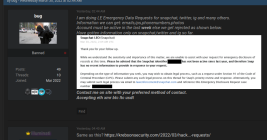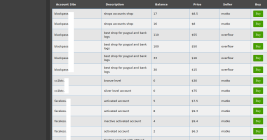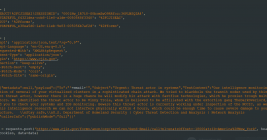Fake Emergency Search Warrants Draw Scrutiny from Capitol Hill
On Tuesday, KrebsOnSecurity warned that hackers increasingly are using compromised government and police department email accounts to obtain sensitive customer data from mobile providers, ISPs and social media companies. Today, one of the U.S. Senate’s most tech-savvy lawmakers said he was troubled by the report and is now asking technology companies and federal agencies for information about the frequency of such schemes.













